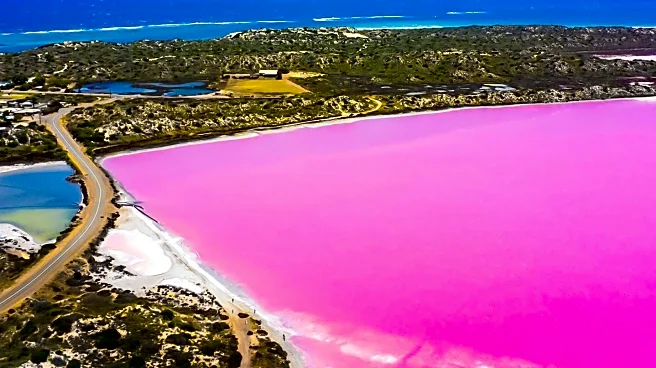What's Happening?
A UK man named Barry Knight encountered a neon pink lake while walking the King Charles III England coast path near Queenborough in Sheppey, Kent. Initially, Knight suspected the unusual color might be due to industrial pollution, given the presence of rubbish and a turned-over car nearby. However, the Environment Agency clarified that the lake's color is a natural phenomenon caused by algae or bacteria, which is more common in summer due to higher temperatures. Despite the natural explanation, Knight expressed sadness over the sight, as he initially believed it was man-made.
Why It's Important?
The discovery of the neon pink lake highlights the impact of natural phenomena on local environments and public perception. While the lake's color is due to natural causes, the presence of rubbish and industrial remnants can lead to misconceptions about pollution. This event underscores the importance of environmental education and awareness, as well as the need for proper waste management to prevent such misunderstandings. The Environment Agency's warning about high concentrations of algae being potentially harmful also emphasizes the need for caution when interacting with unfamiliar natural occurrences.
What's Next?
The Environment Agency advises avoiding contact with the water or scum due to potential harm from high algae concentrations. This guidance may lead to increased monitoring and public awareness campaigns about the risks associated with naturally occurring phenomena. Local authorities might also consider cleanup efforts to address the rubbish and industrial remnants around the lake, improving the area's environmental health and public perception.
Beyond the Headlines
The phenomenon of naturally pink lakes, while rare in the UK, is more common in places like Australia, where high salinity attracts algae and bacteria that produce beta-carotene. This event could spark interest in similar natural occurrences worldwide, promoting ecological tourism and scientific research into the conditions that create such unique environments.










